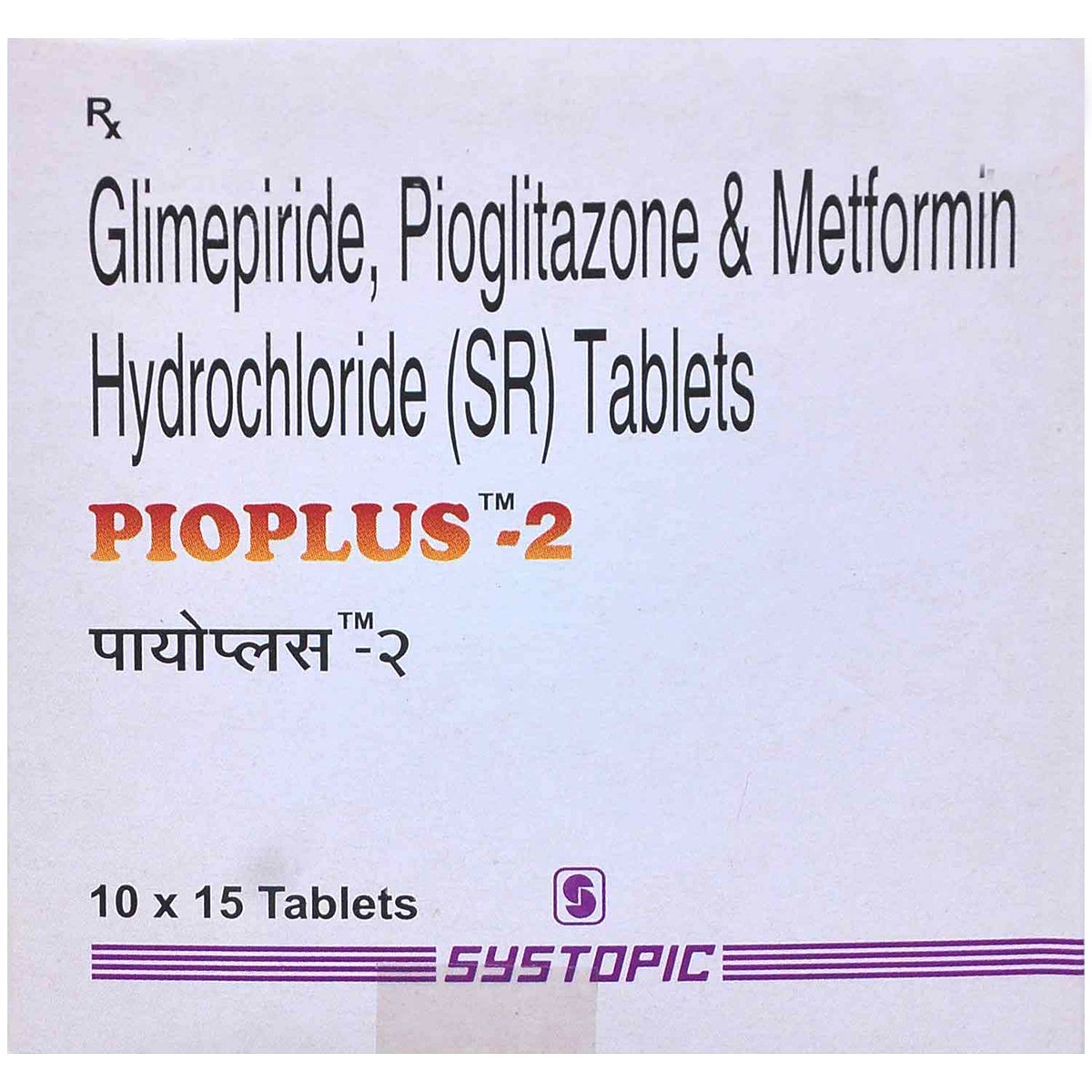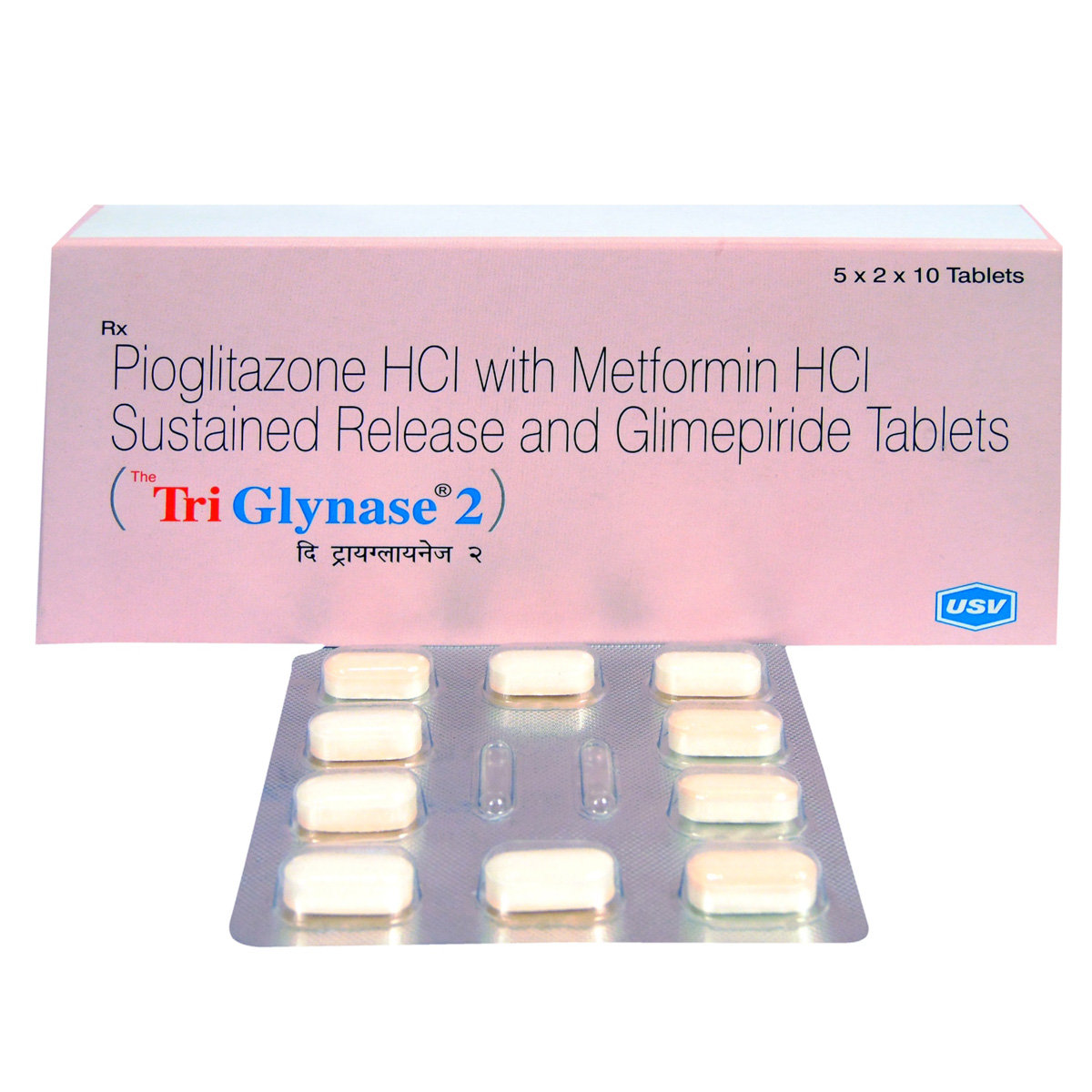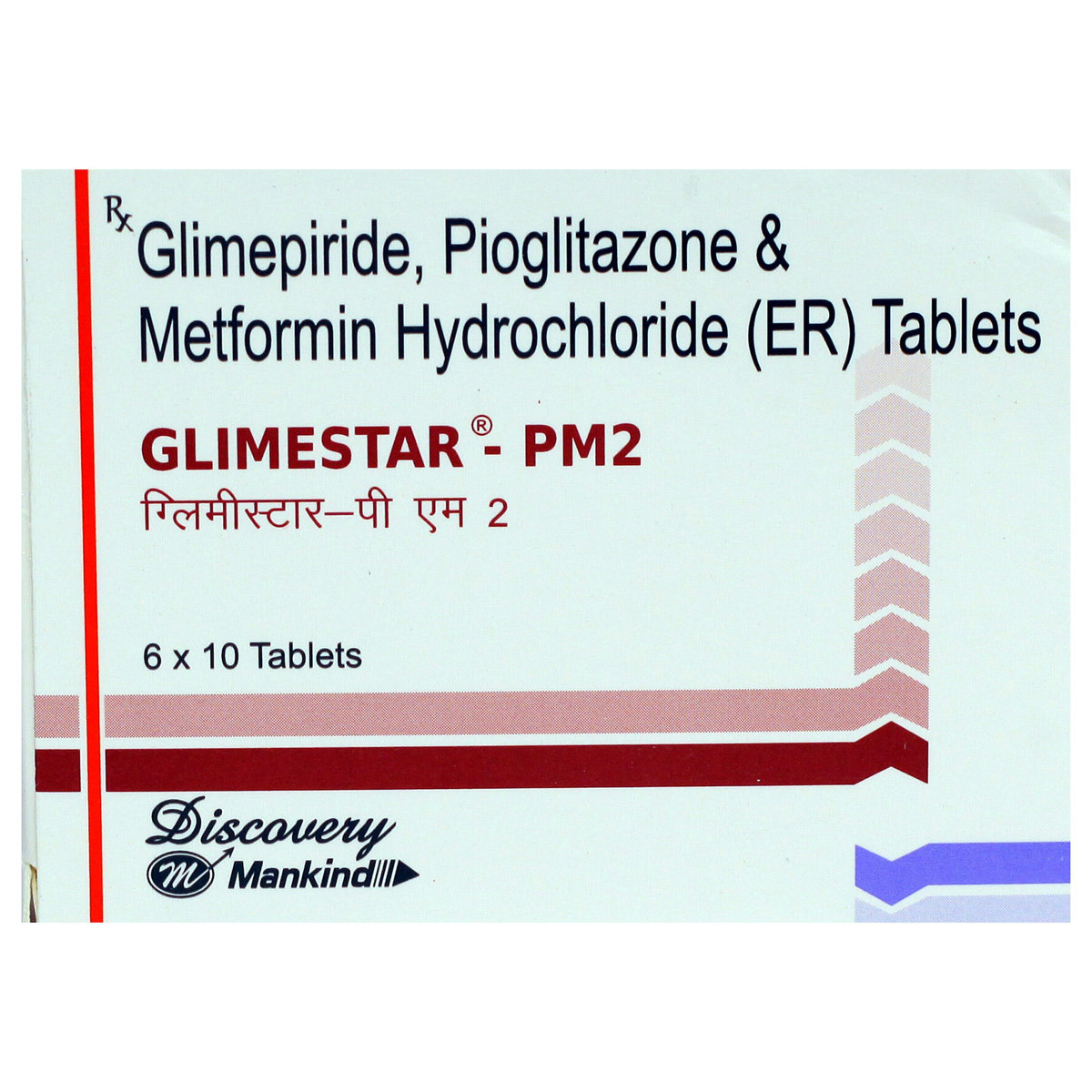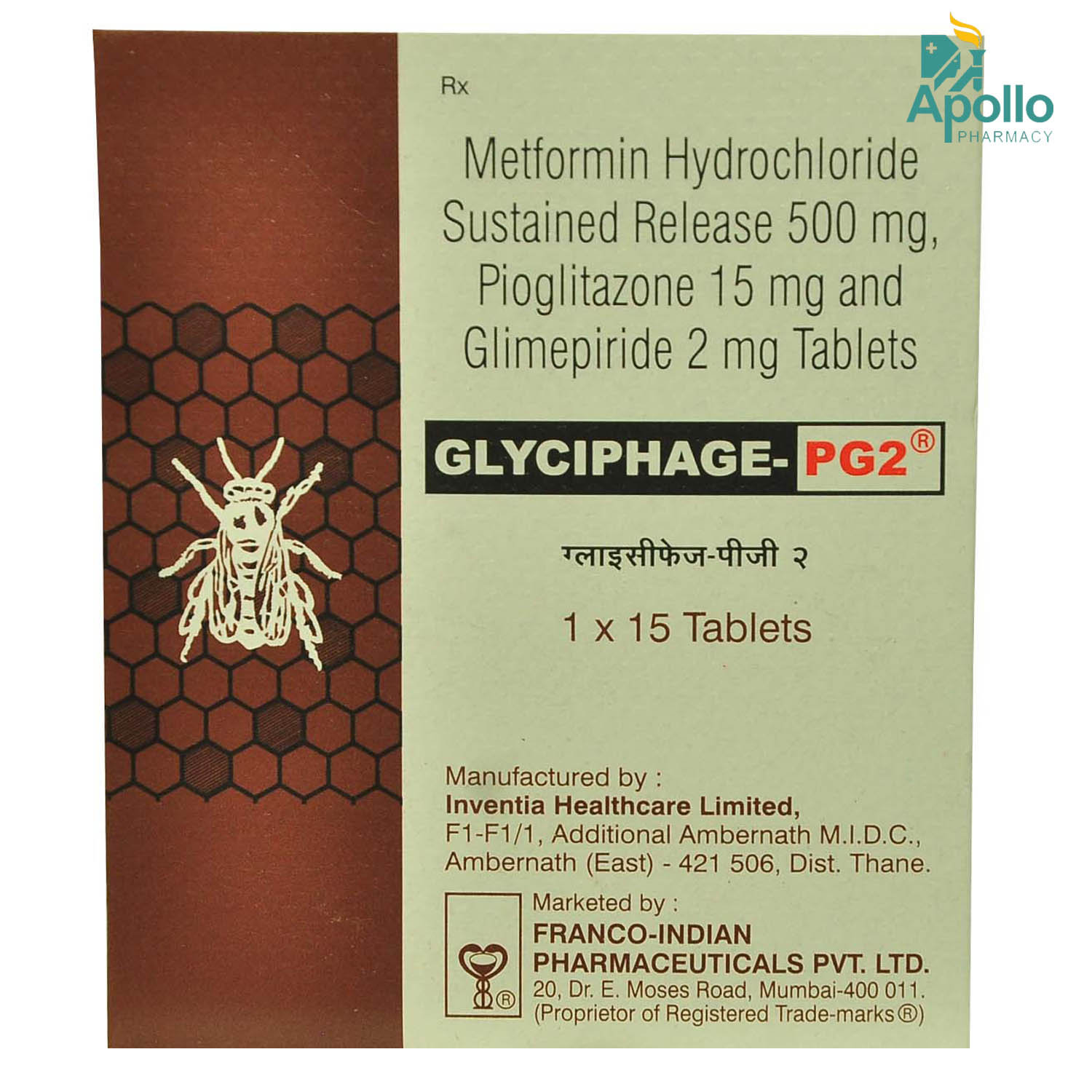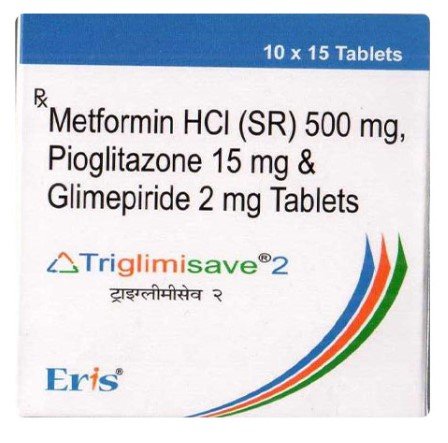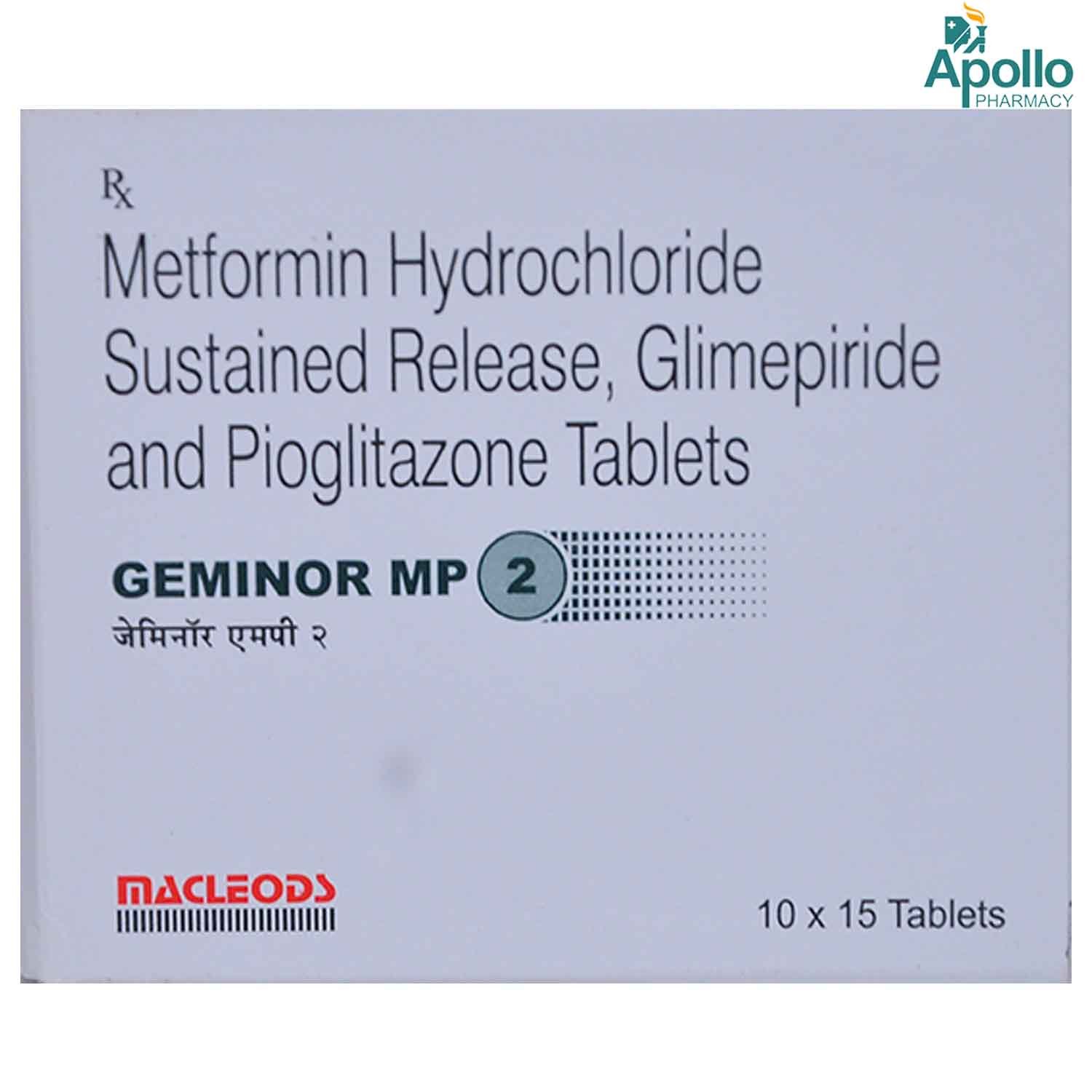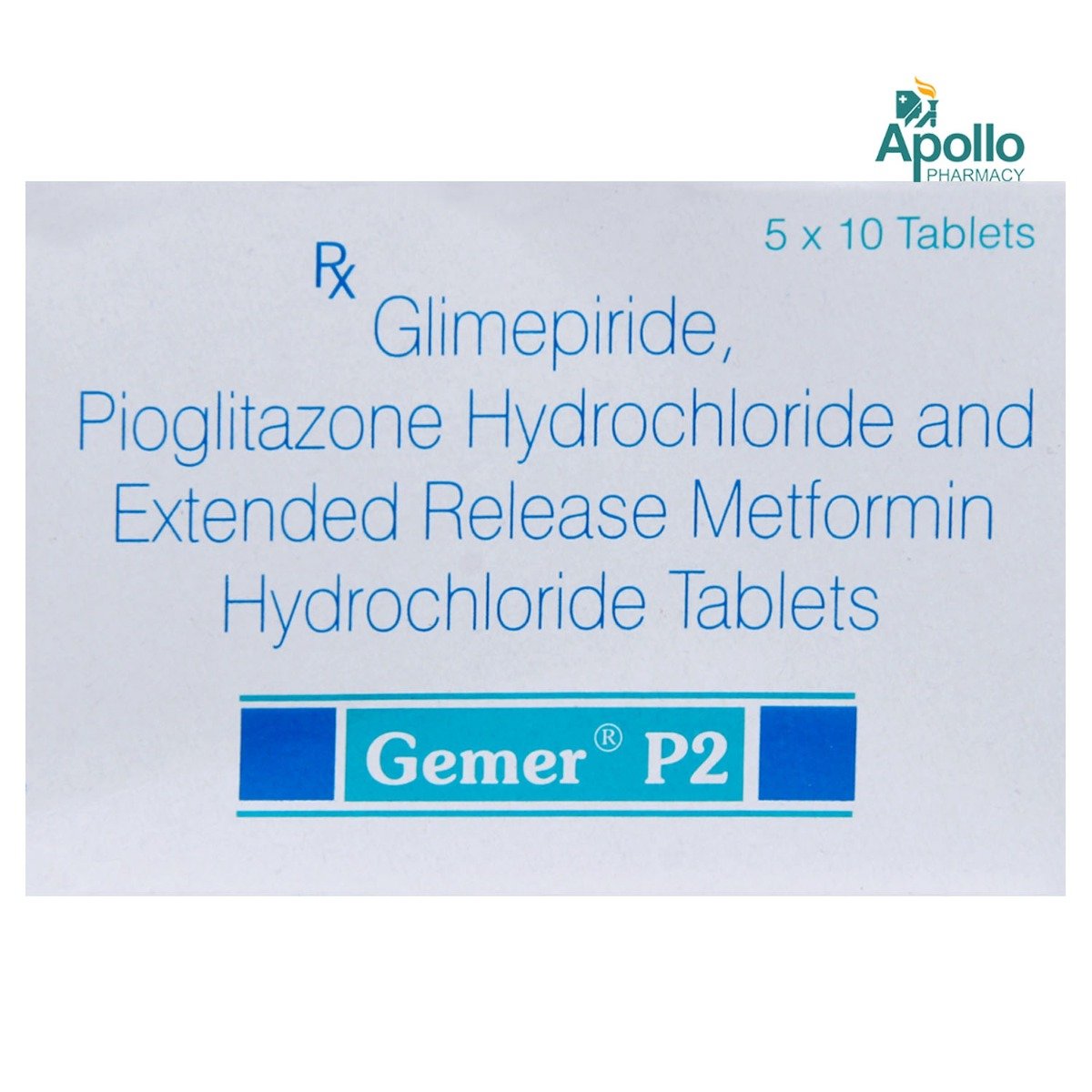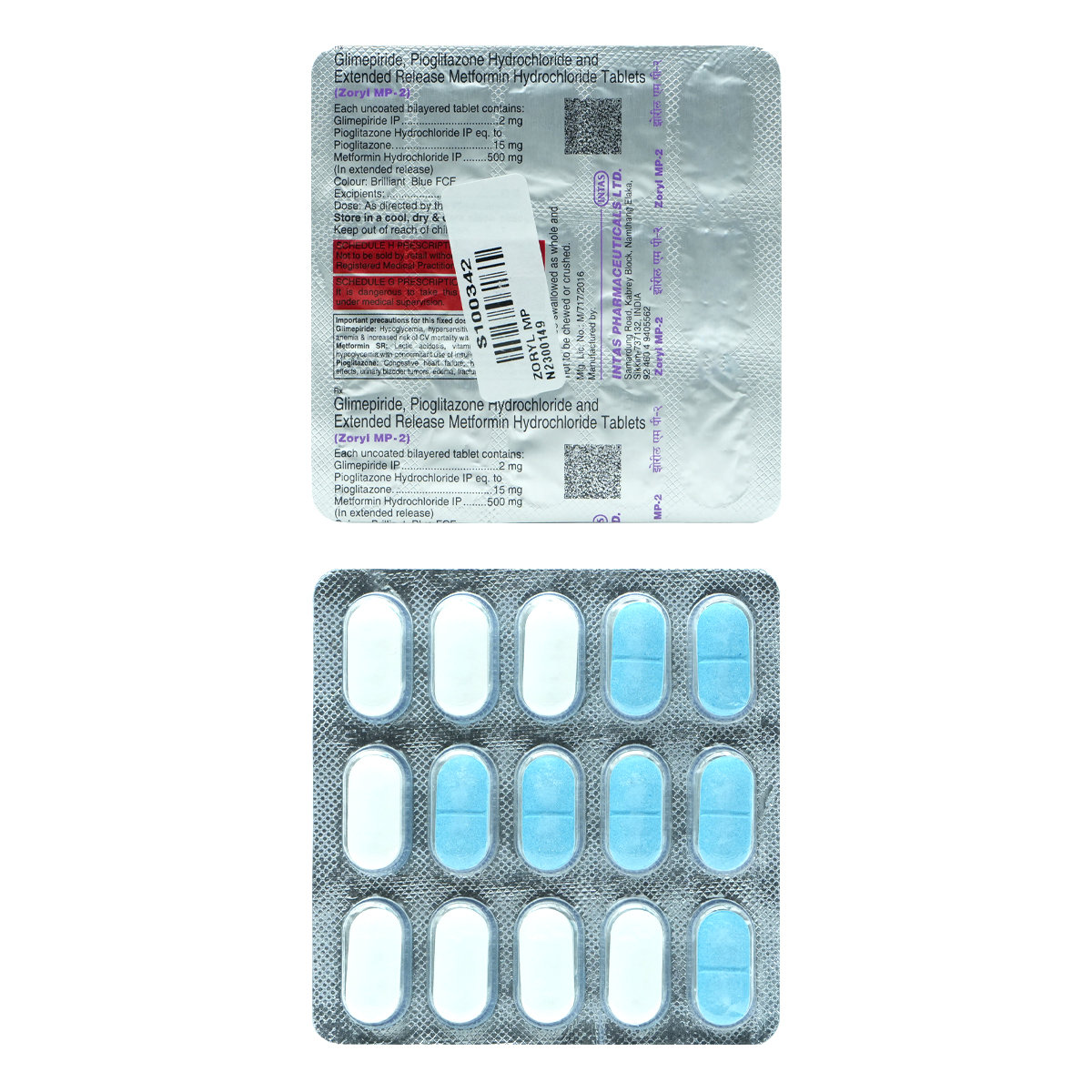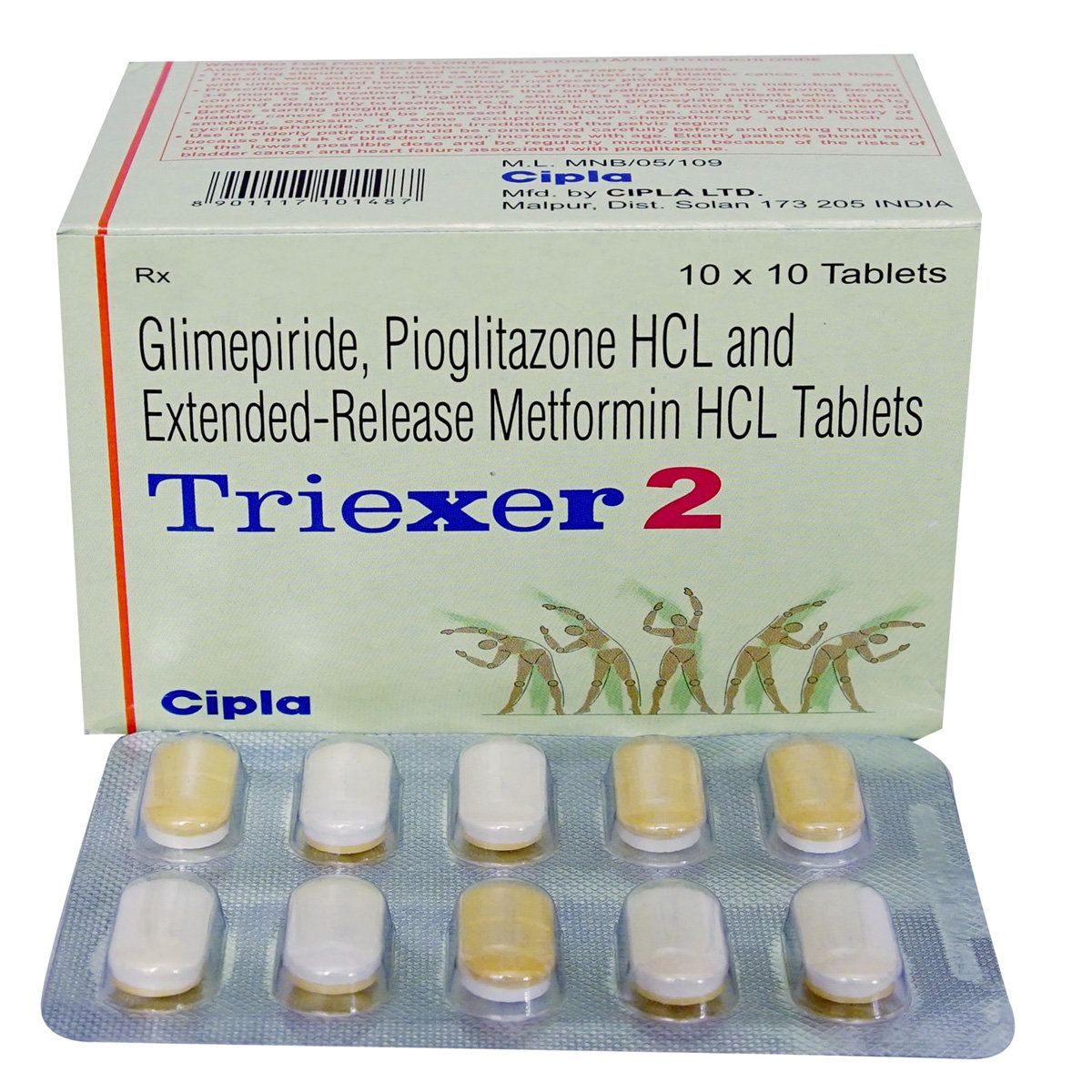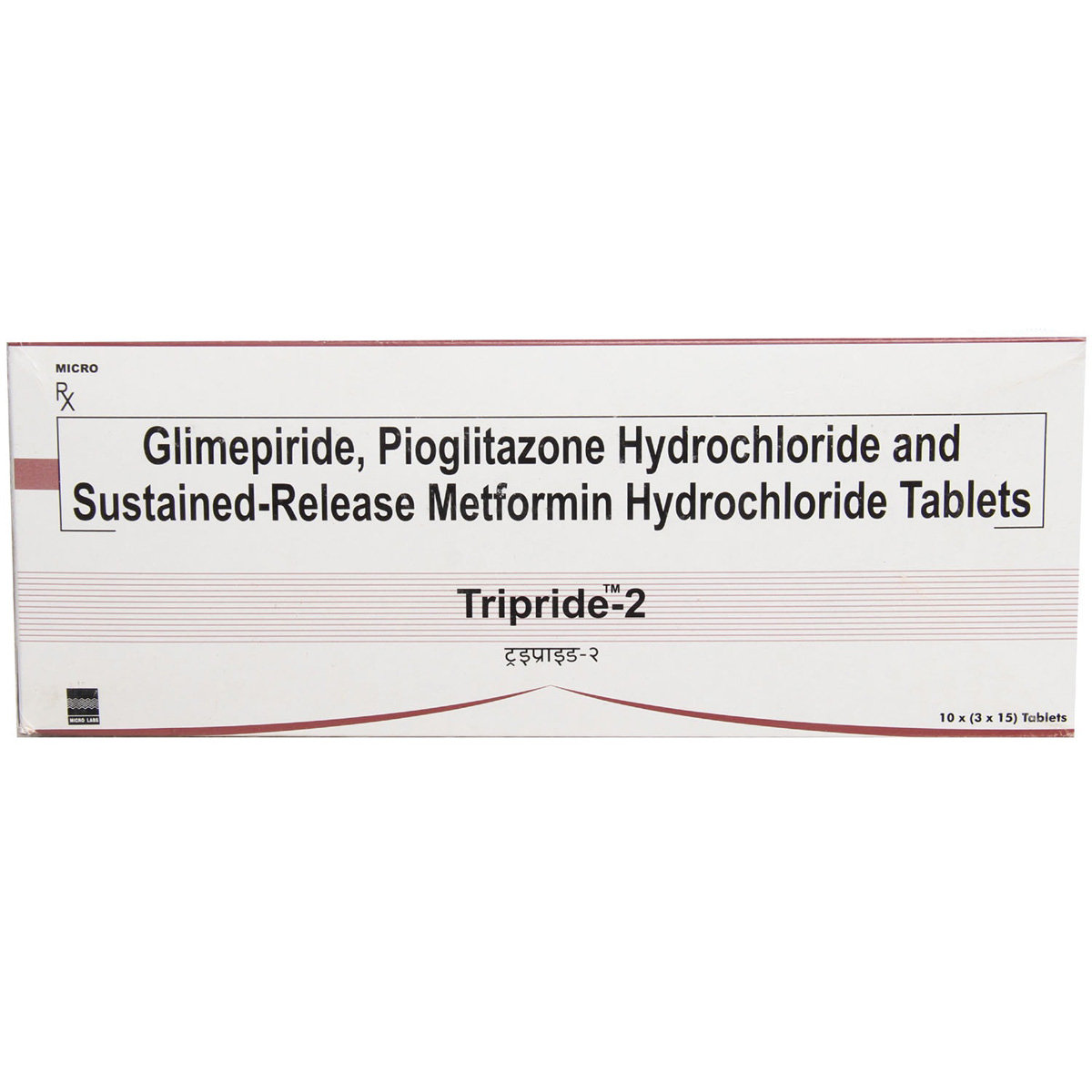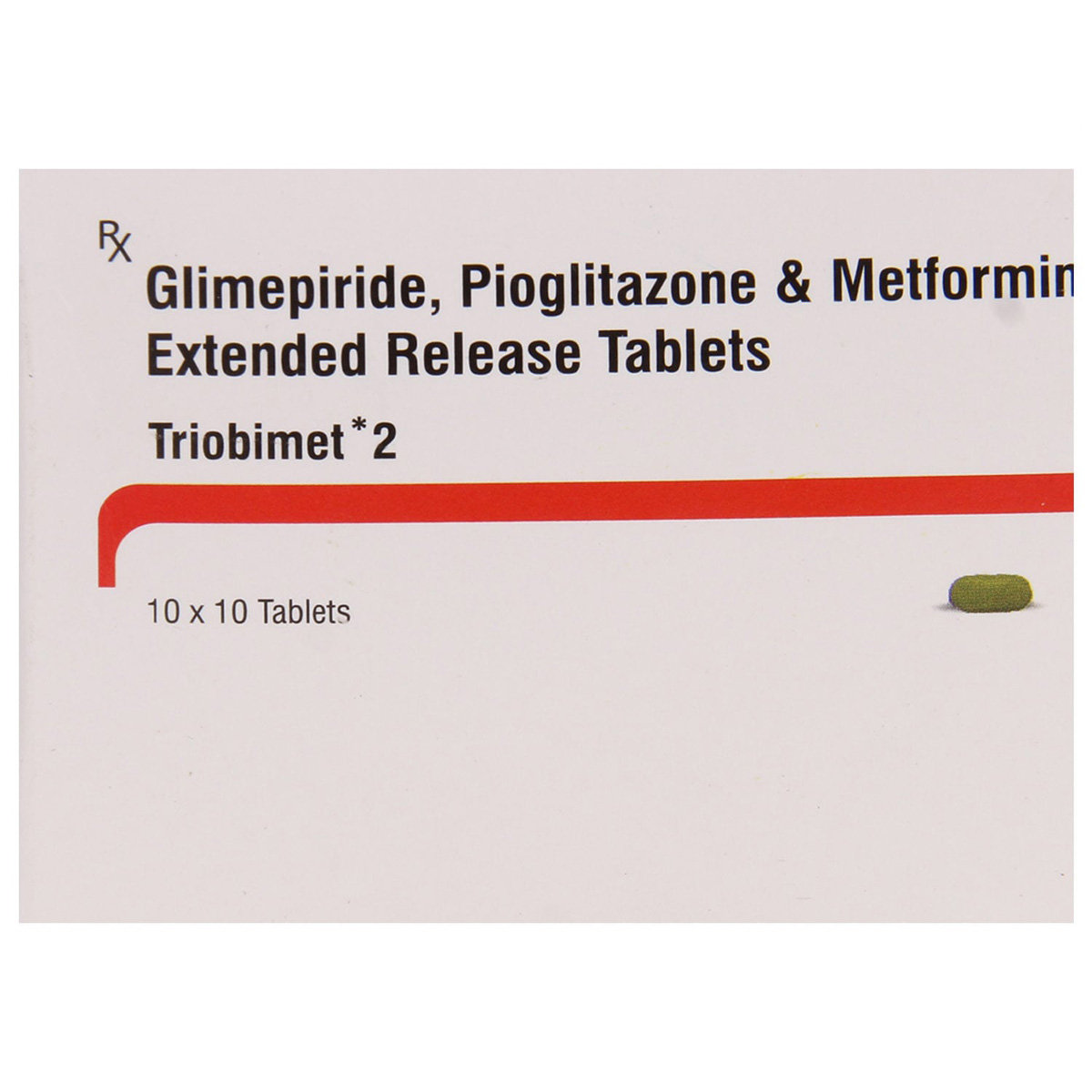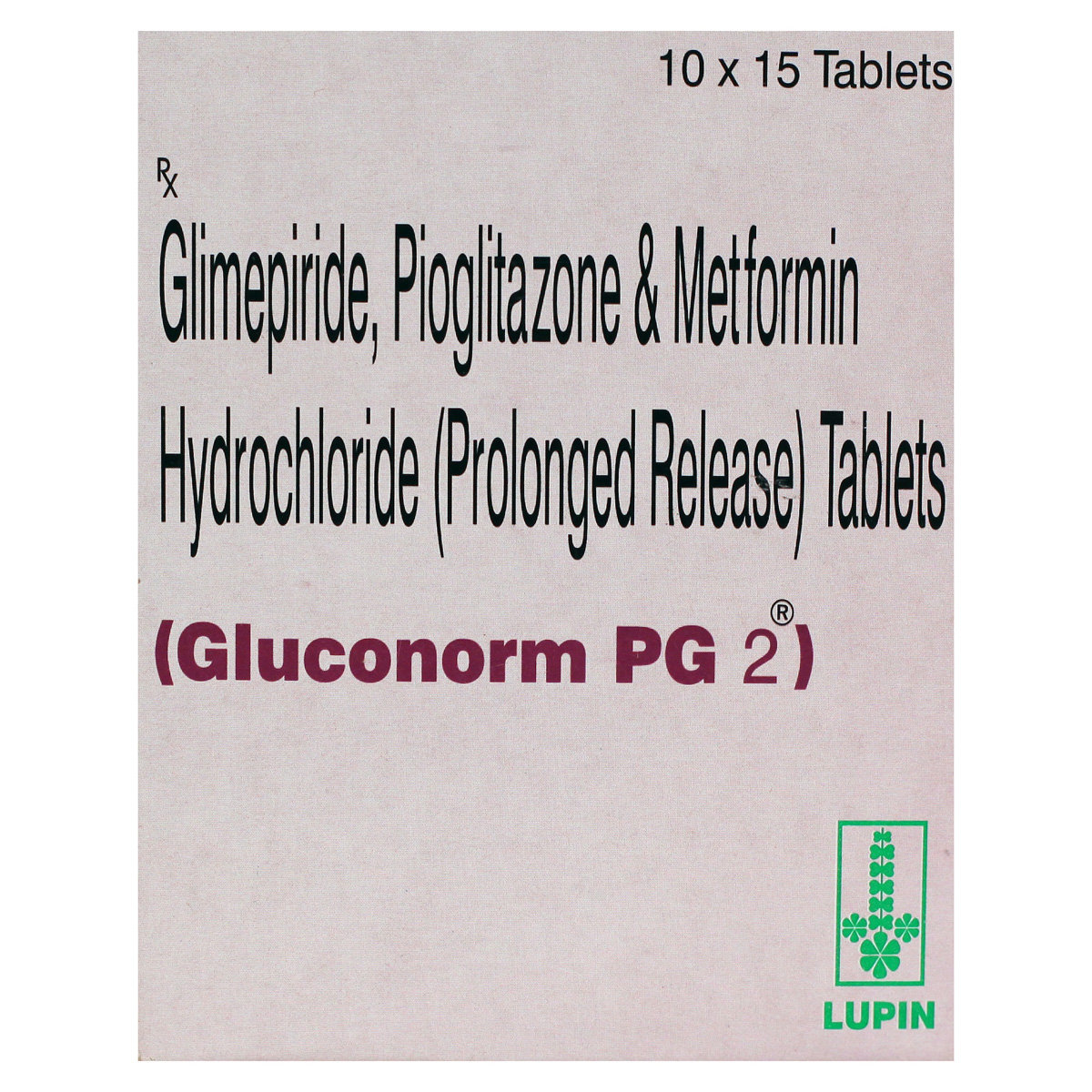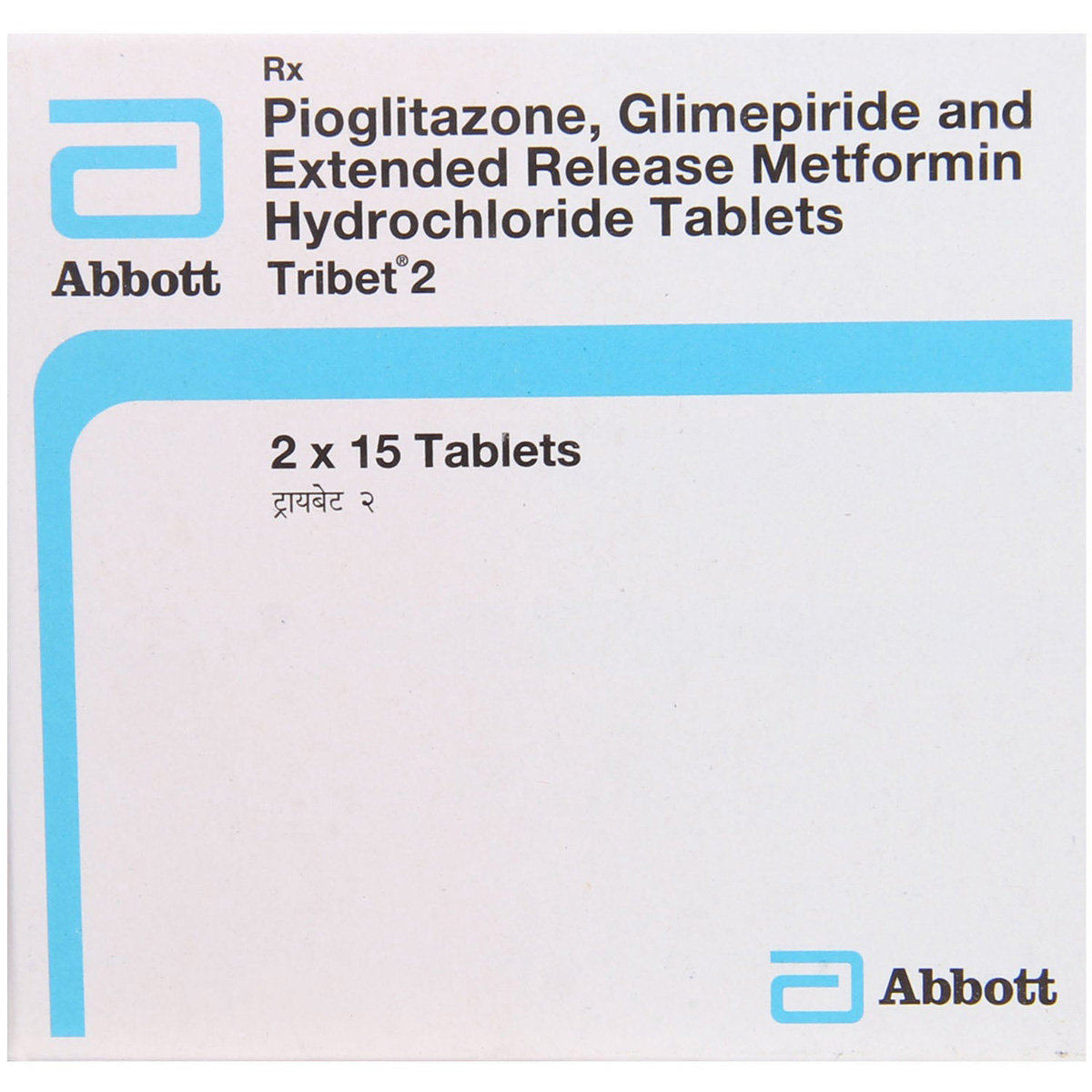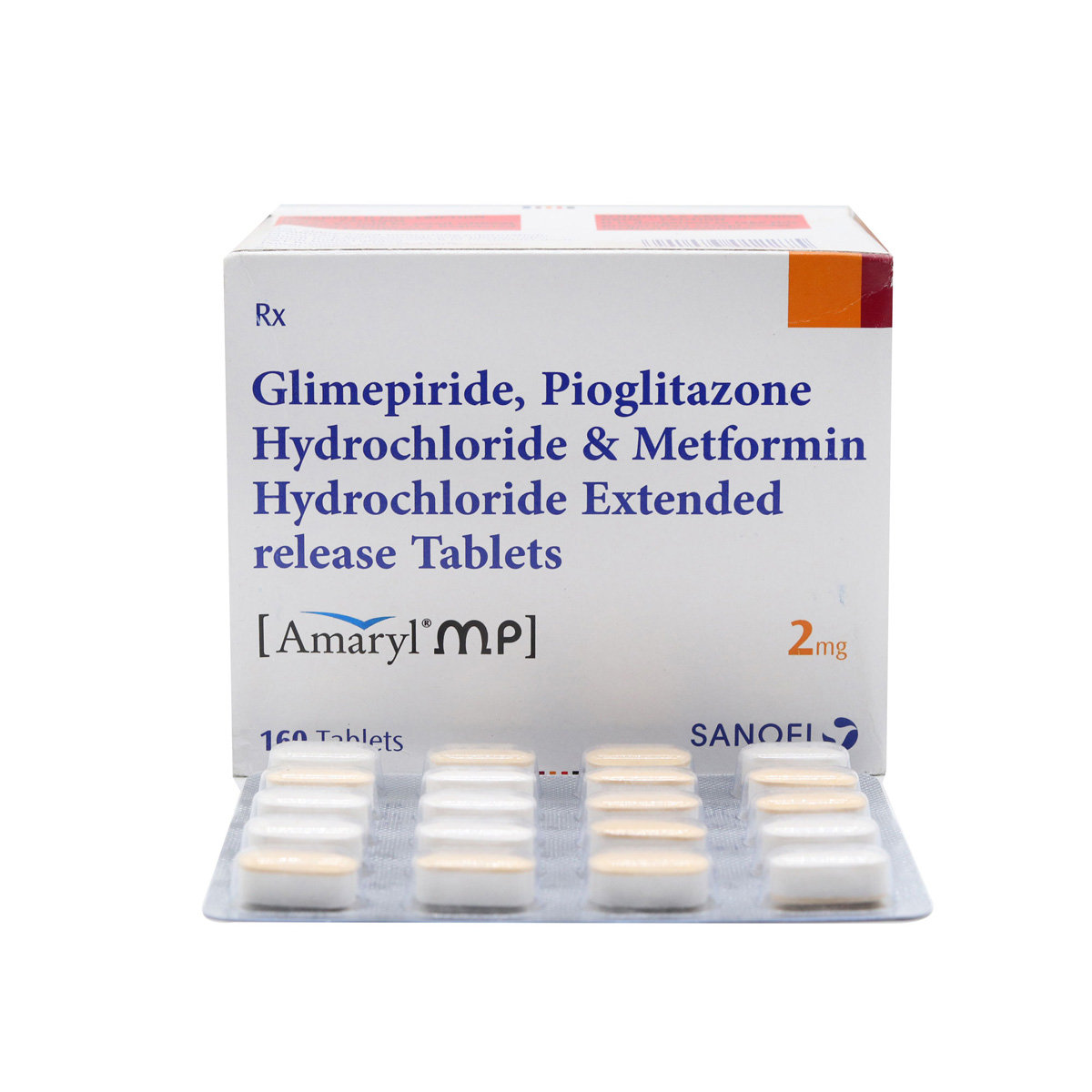- Home
- Glimirep P2 Tablet
Glimirep P2 Tablet Substitute
Glimirep P2 Tablet Substitute
Medicine Composition:
GLIMEPIRIDE-2MG+METFORMIN-500MG+PIOGLITAZONE-15MGAll Substitutes & Brand Comparisons
RX
Pioplus 2 Tablet 15's
Systopic Laboratories Pvt Ltd
₹108
(₹6.48 per unit)
22% CHEAPERRX
Triglynase 2 Tablet 10's
USV Pvt Ltd
₹93.5
(₹8.42 per unit)
RX
Glimestar-PM 2 Tablet 10's
Mankind Pharma Pvt Ltd
₹117
(₹10.53 per unit)
25% COSTLIERRX
Triglimiprex 2 Tablet 10's
Aristo Pharmaceuticals Pvt Ltd
₹136
(₹12.24 per unit)
46% COSTLIERRX
Glyciphage PG 2 Tablet 15's
Franco Indian Pharmaceuticals Pvt Ltd
₹225
(₹13.5 per unit)
61% COSTLIERRX
Triglimisave 2 Tablet 15's
Eris Life Sciences Ltd
₹257.5
(₹15.45 per unit)
84% COSTLIERRX
Geminor MP 2 Tablet 15's
Macleods Pharmaceuticals Ltd
₹268.5
(₹16.11 per unit)
92% COSTLIERRX
Gemer P2 Tablet 10's
Sun Pharmaceutical Industries Ltd
₹197.5
(₹17.78 per unit)
112% COSTLIERRX
Zoryl MP-2 Tablet 15's
Intas Pharmaceuticals Ltd
₹318
(₹19.08 per unit)
127% COSTLIERRX
Triexer 2 Tablet 10's
Cipla Ltd
₹220.5
(₹19.85 per unit)
137% COSTLIERRX
Tripride-2 Tablet 15's
Micro Labs Ltd
₹331.5
(₹19.89 per unit)
137% COSTLIERRX
Triobimet 2 Tablet 10's
Corona Remedies Pvt Ltd
₹229.5
(₹20.66 per unit)
146% COSTLIERRX
Gluconorm PG 2 Tablet 15's
Lupin Ltd
₹361
(₹21.66 per unit)
158% COSTLIERRX
Tribet 2 Tablet 15's
Abbott India Ltd
₹375.5
(₹22.53 per unit)
169% COSTLIERRX
Amaryl MP 2 mg Tablet 20's
Sanofi India Ltd
₹504.5
(₹22.71 per unit)
171% COSTLIER

When Should You Consider Switching from Glimirep P2 Tablet ?
Patients may explore substitutes in the following scenarios:
- High monthly cost of Glimirep P2 Tablet
- Non-availability in local pharmacies
- Generic recommendation by a doctor
- Side effects or better tolerability with alternatives
What to Know Before Switching
Before you switch from Glimirep P2 Tablet to another medicine, here are some important points to keep in mind:
Same salt, different brands:
Most substitutes contain the same active ingredient - GLIMEPIRIDE-2MG+METFORMIN-500MG+PIOGLITAZONE-15MG, but the fillers, coating, or manufacturing quality may vary slightly.
Consult your doctor first:
Even if the salt is the same, your doctor can confirm if the substitute is right for your condition, dosage, and health history.
Watch out for allergies or reactions:
Some people may react differently to certain brands due to inactive ingredients. If you notice any side effects, inform your doctor immediately.
Price ≠ effectiveness:
A lower-priced substitute doesn't mean it's less effective. Many generic medicines work just as well as branded ones.
Check the dosage form and strength:
Always match the substitute’s strength (e.g., 5mg, 10mg) and form (tablet, capsule, syrup) with what your doctor prescribed.
Uses
Medicinal Benefits
Glimirep P2 Tablet contains Metformin, Glimepiride, and Pioglitazone. Glimirep P2 Tablet is given when single or dual therapy of hypoglycemic agents is not effective in diabetes patients. Metformin acts by decreasing liver glucose production and intestinal glucose uptake. Glimepiride acts by increasing the secretion of insulin by the pancreas. Pioglitazone works by decreasing the amount of glucose released by the liver and improving insulin sensitivity in muscle and fat.
FAQs
The substitutes of Glimirep P2 Tablet contain the same active salt(s) - GLIMEPIRIDE-2MG+METFORMIN-500MG+PIOGLITAZONE-15MG. However, they may differ in price, manufacturing quality, and inactive ingredients. Speak to your doctor to find a suitable option.
Switching to a generic substitute medicine in the place of Glimirep P2 Tablet is often possible if it has the same salt, strength, and dosage form. But always check with your doctor before making any changes to your medication.
Generics versions of Glimirep P2 Tablet are typically more affordable because they don’t include the original brand's research, development, and marketing costs. They contain the same active ingredient and are approved for safety and effectiveness.
Most people don’t notice any difference. However, some may react to different fillers or coatings. If you notice any unusual symptoms after switching, consult your doctor.
Make sure the new medicine has the same active salt, strength, dosage form. Always confirm the change with your doctor or pharmacist.
Substitutes of Glimirep P2 Tablet meet the same safety and efficacy standards as Glimirep P2 Tablet , but small differences in absorption or formulation can exist. A doctor can help you choose the right one for your needs.
Yes. Substitutes of Glimirep P2 Tablet may vary in color, size, or shape due to differences in manufacturing and branding, but this does not affect how they work.
Yes, it’s generally safe to switch between multiple substitutes of Glimirep P2 Tablet if they have the same salt and strength. However, always inform your doctor so they can monitor how your body responds.
Yes, many people safely use substitutes of Glimirep P2 Tablet for long-term treatment. Just ensure it’s done under medical supervision.
If your symptoms stay under control or lab results remain stable, the substitute for Glimirep P2 Tablet is likely working well. Regular follow-ups with your doctor are important.
Absolutely. Even with the same salt, small differences can affect how your body responds when switching from Glimirep P2 Tablet to its substitute. Always consult your doctor before switching.
Buy best Diabetics products by
Torrent Pharmaceuticals Ltd
Sun Pharmaceutical Industries Ltd
Eris Life Sciences Ltd
Intas Pharmaceuticals Ltd
Lupin Ltd
Micro Labs Ltd
Mankind Pharma Pvt Ltd
Lloyd Healthcare Pvt Ltd
Alkem Laboratories Ltd
Abbott India Ltd
Glenmark Pharmaceuticals Ltd
Cipla Ltd
Macleods Pharmaceuticals Ltd
Wockhardt Ltd
Dr Reddy's Laboratories Ltd
Primus Remedies Pvt Ltd
USV Pvt Ltd
Aristo Pharmaceuticals Pvt Ltd
Emcure Pharmaceuticals Ltd
Alembic Pharmaceuticals Ltd
Ipca Laboratories Ltd
La Renon Healthcare Pvt Ltd
Ajanta Pharma Ltd
Medley Pharmaceuticals Ltd
East West Pharma India Pvt Ltd
Elbrit Life Sciences Pvt Ltd
Corona Remedies Pvt Ltd
Hbc Life Sciences Pvt Ltd
Sinsan Pharmaceuticals Pvt Ltd
Ranmarc Labs
Mitoch Pharma Pvt Ltd
Zydus Healthcare Ltd
Sanofi India Ltd
Akumentis Healthcare Ltd
Fusion Health Care Pvt Ltd
Unison Pharmaceuticals Pvt Ltd
Jubilant Lifesciences Ltd
Novo Nordisk India Pvt Ltd
Tas Med India Pvt Ltd
Blue Cross Laboratories Pvt Ltd
Msn Laboratories Pvt Ltd
Eswar Therapeutics Pvt Ltd
Indoco Remedies Ltd
Q Check Pharmaceuticals
Alteus Biogenics Pvt Ltd
Anthem Bio Pharma
Franco Indian Pharmaceuticals Pvt Ltd
Systopic Laboratories Pvt Ltd
Panacea Biotec Ltd
Zydus Cadila
Biocon Ltd
Edoc Life Sciences Pvt Ltd
Koye Pharmaceuticals Pvt Ltd
Arkas Pharma Pvt Ltd
Diacardus Pharmacy Pvt Ltd
Elinor Pharmaceuticals (P) Ltd
Remedy Life Sciences Pvt Ltd
Saan Labs
Talent India Pvt Ltd
Jarun Pharmaceuticals Pvt Ltd
Capital Pharma
Shrrishti Health Care Products Pvt Ltd
FDC Ltd
Leeford Healthcare Ltd
Nirvana India Pvt Ltd
Elder Pharmaceuticals Ltd
Eli Lilly and Company (India) Pvt Ltd
Glynis Pharmaceuticals Pvt Ltd
Zuventus Healthcare Ltd
Arrient Healthcare Pvt Ltd
Cadomed Pharmaceuticals India Pvt Ltd
Orris Pharmaceuticals
Akesiss Pharma Pvt Ltd
Bal Pharma Ltd
Biochem Pharmaceutical Industries Ltd
Knoll Healthcare Pvt Ltd
Lippon Pharma Pvt Ltd
Morepen Laboratories Ltd
Neucure Lifesciences Pvt Ltd
Opsis Care Lifesciences Pvt Ltd
Wallace Pharmaceuticals Pvt Ltd
Acmedix Pharma Llp
Converge Biotech Pvt Ltd
Erinyle Pharma
Indiabulls Pharmaceuticals Pvt Ltd
Ozone Pharmaceuticals Ltd
Retra Life Science Pvt Ltd
Alvio Pharmaceuticals Pvt Ltd
Geneaid Pharmaceuticals
Heal (India) Laboratories Pvt Ltd
Olcare Laboratories Pvt Ltd
Vasu Organics Pvt Ltd
Kotak Life Sciences
Lakshya Life Sciences Pvt Ltd
Proqol Health Care Pvt Ltd
Sanz Pharmaceuticals
Daylon healthcare pvt Ltd
Mcronus Lifescience Pvt Ltd
Natco Pharma Ltd
Orsim Pharma

